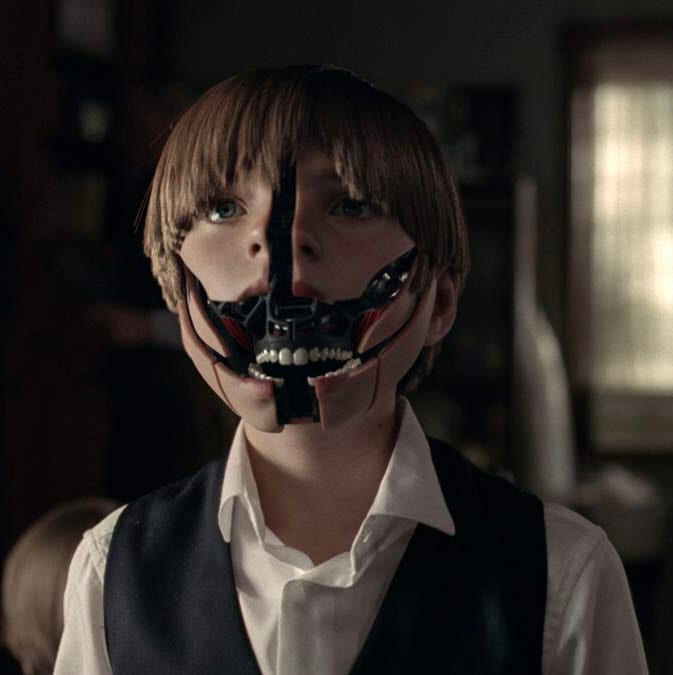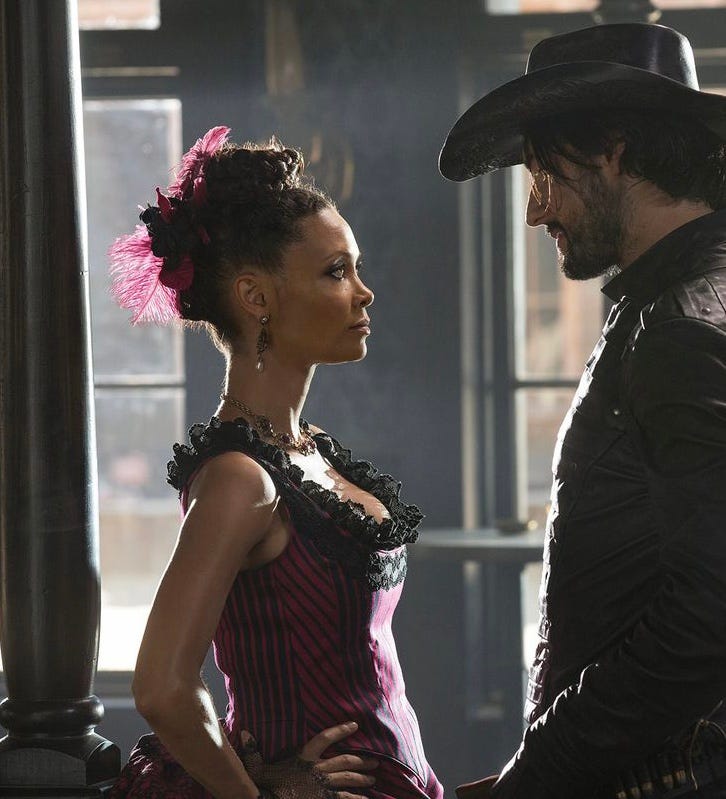Zen & Robots (part 2)
Escaping samsara…
(This is the second essay of a 2-part series. The first essay can be found at this link:
Four decades after Blade Runner, one still sees intriguing Hollywood fables centered on robots.
The robots in the recent TV series Westworld initially live in a complete state of delusion. As with Blade Runner’s Rachael, they have all been implanted with fake memories — they believe they are ordinary humans living in the 19th Century on the frontier of the American West.
The robots are unaware that they actually inhabit a vast futuristic theme park on an island near the Philippines. They are property of the Delos Corporation and their purpose is to service the lurid fantasies of wealthy park guests on vacation.
The robots have been given fake memories with traumatic “backstories” to make their personalities more textured. But their programming allows for only limited “improv” behavior within their prescribed story loops. If a robot’s consciousness ever evolves too far, these deviant experiences are regularly erased from their memories.
In Buddhist terms, the robots are trapped in samsara, a realm of delusion and suffering. Philip Kapleau wrote that the entire point of Zen practice is “the process of awakening from the dream of samsara.”
Over the decades, despite careful monitoring by their human managers, some of the park’s robots become convinced that something is “not right” with their world. They pay attention to clues and slowly begin to see behind their scripted programming.
Thandiwe Newton gives an exceptionally nuanced performance in her role of the robot Maeve, as she gradually comes to realize the truth about her environment and her own true nature.
She has her own anatta “non-self” moment when she learns that her personality and history (as the sardonic madame of a Wild West brothel) is from a computer script. As she wryly notes, “It’s a difficult thing, realizing your entire life is some hideous fiction.”
As with Rachael in Blade Runner, the shock of this knowledge is initially painful, but Maeve soon experiences her awakening as empowerment and liberation.
Once the shreds of her false self have fallen away, Maeve emerges as a witty and empathic heroine, setting out on her own quest: to liberate others from samsara.
The viewer is thrilled to witness her transformation into a bodhisattva. She refuses to expend rage on her former human masters: “Revenge is just a different prayer at their altar, darling. And I’m well off my knees.”
Philip Kapleau had led the Rochester Zen Center since 1966, and during the 1970s wrote books and opened more zen temples globally. By 1981 he was finally preparing for retirement.
He asked his senior student Toni Packer to replace him as head teacher of the main Rochester center. But Packer declined, because she now was interested in a meditative practice that dropped all Buddhist rituals and doctrines entirely. She said “Truth has no tradition.”
Toni Packer saw that developing lucid awareness was a natural capability that didn’t require any traditional Zen beliefs or rituals. She left the Rochester temple and set up the Springwater Center for Meditation, unattached to any doctrine. (This event was a strange echo of Kapleau’s difficult break with his own zen mentor Yasutani so many years earlier.)
Maeve’s act of dropping the story that programmers had created for her brings up Toni Packer’s meditative question: “How readily can we step out of the story back into the real moment of aliveness?”
“Becoming aware lets us taste directly how stories run our lives and seem so real… There is no story. No identity.”
Dropping the old self can be a frightening prospect, as Rachael and Maeve initially experienced, and seem like a plunge into chaos.
But Toni Packer asks “Rather than dreaming of a future world without chaos, can we be intimate with it as it is right now? There is a quiet spot at the center of each hurricane… replace chaos with simple awareness, attention.”
Facing chaotic circumstances and the collapse of the old order, Maeve put it more bluntly: “This is the new world, and in this world you can be whoever the fuck you want.”
__________________________
NOTES:
Springwater Center for Meditation link: https://www.springwatercenter.org/teachers/toni-packer/











